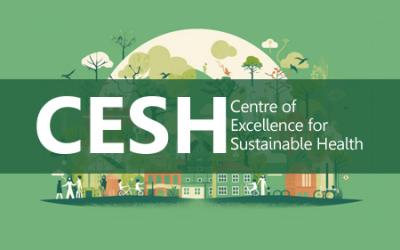Reference group of CESH provides valuable feedback on the Centre’s toolkits for sustainable health

Reference group of CESH provides valuable feedback on the Centre’s tool kits for sustainable health.
On the 14th of December 2022 the working group members of the Centre of Excellence for Sustainable Health (CESH) were joined by the Centre’s reference group for a 90-minute Zoom session. With the aim of sharing updates of what has been happening during the year and especially the progress on the so called Tools for Action, the meeting became a fruitful and interactive one with valuable feedback and input from old and new reference group members.
The meeting was introduced with welcome remarks by the Vice President of Karolinska Institutet, Anders Gustafsson, who emphasised the pressing global challenges, not least the recent Ebola outbreak in Uganda, and the need to collaborate across borders to deal with them. The chairs of the Centre, Professor Rhoda Wanyenze and Professor Tobias Alvén shared updates on the Karolinska Institutet delegation to Uganda in May. They further shared progress on the CESH capacity building and training programs, as well as shared the dissemination activities and conferences of the work done by CESH during the year.
Progress in developing tool kits for sustainable health
The Tools for Action refer to five self-administered tool kits with practical tips, guidelines, checklist and activities that are currently being compiled and developed jointly by experts from KI and MAK to help drive the agenda for sustainable health. The Tools for Action coordinators, Carita Rehn and Solomon Wafula, presented two finalised tool kits, firstly the Innovation and Technology for Health Toolkit and secondly the Research to Action Toolkit.
Carita and Solomon presented a clickable demonstration of the website layout of the two toolkits before introducing an interactive activity. In breakout rooms, groups of 4-5 people used a “rolestorming” exercise to spur conversations about user needs and contextual relevance as important for sustainable health.
